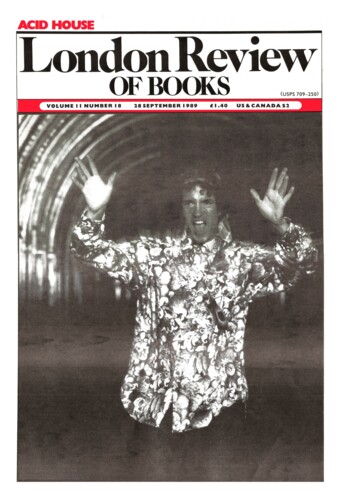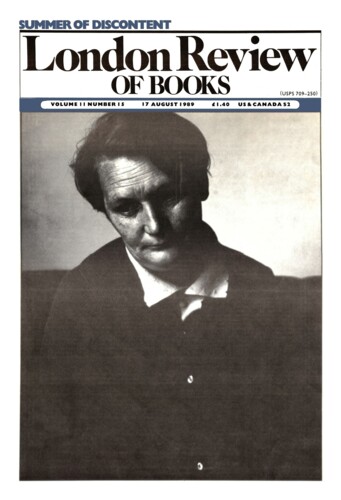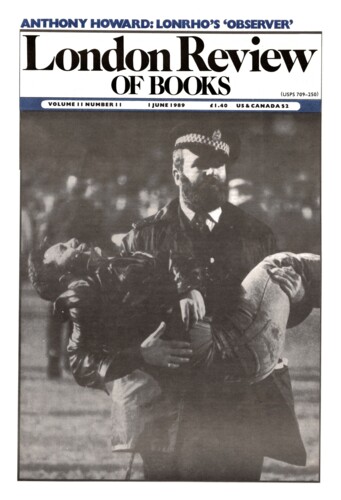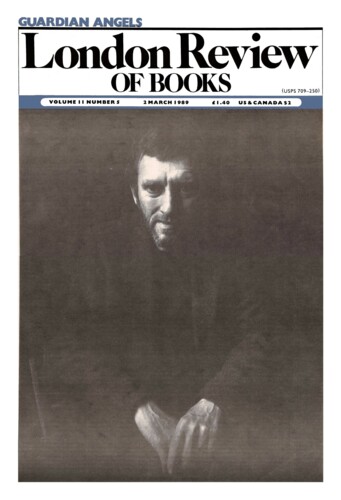Diary: Ten Years of the LRB
Karl Miller, 26 October 1989
There are more of them now in London, more reviews, than there used to be. A welcome shake-up in the newspaper world has brought this about. New papers have occasioned a remarkable and continuing exodus of notable writers from the old ones, which have set themselves, in defence, to expanding their book sections, and may in desperation have to turn their hand to the task of discovering and developing new writers to fill their vacant spaces. It would be good if this were to send up the ratio of books reviewed to books published. But that won’t happen. Most books will remain unnoticed; the same small number will be reviewed, for a while, in a larger number of places. In all too many of these places there will simply be more of the customary rubbishing and rave. Few people can be looking forward to the dawn of a new respect for the judgments purveyed by reviewers.





